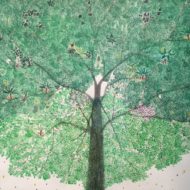I’ve recently started a postdoctoral research fellowship at the University of Oxford, where I’ll be affiliated with the Oxford Internet Institute and the Reuters Institute for the Study of Journalism. I’m joining a research team on the Misinformation, Science and Media project which is led by Philip Howard and Rasmus Nielsen. The project investigates the implications of misinformation campaigns online on the …
Continue reading “Postdoctoral Research Fellowship at the University of Oxford”
